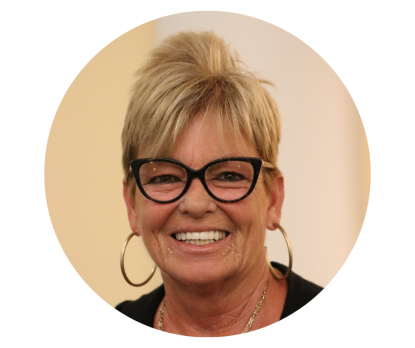
Amy Stoner
Since 1989, September has been recognized as National Recovery Month. Its goal is to promote and support treatment and recovery programs while celebrating the strength and pride of the recovery community with dignity. With the right treatment, support, and resources, recovery is possible!
According to the Substance Abuse and Mental Health Services Administration, of the 29 million adults with a substance use problem, 72.2% (or 20.9 million) consider themselves to be in recovery or to have recovered from their drug or alcohol use problem. That statistic is promising and gives me hope.
Those of us who are either in recovery or have a loved one in recovery know that building social support networks within a caring community is essential. We do not recover alone. We all need people who accept us, love us, and encourage us to grow. In a remarkable way, God has called me to do exactly that kind of thing in my work with Catholic Social Services.
I often tell people that when you walk through the doors of Mercy Hospice, you immediately sense God’s presence.
A program of Catholic Social Services, Mercy Hospice transitioned from a shelter for women experiencing homelessness to a recovery house in the mid-90s. That change took place in response to the overwhelming need for positive, stable living environments conducive to recovery. Today, Mercy Hospice is the only recovery house in the City of Philadelphia that accepts mothers and children.
Thousands of women and hundreds of children have passed through the doors of Mercy Hospice. Many have gone on to live healthy, productive, and sober lives. I have truly found God in each and every one of our residents.
There are those times when the people we serve share their faith with me and help me to grow in mine. Often, residents and alumni of Mercy Hospice will share their personal journeys with us. We listen to their accounts of living with addiction, cycling through rehab after rehab, living and working through what is often referred to as “the wreckage of their past” and their recovery journey, which often includes periods of relapse. One commonality that all these women have shared with me is their faith and their reliance on God who has in many cases saved them from death and given them another opportunity for life.
Last month, I received an email from a former resident who arrived at Mercy Hospice four months pregnant, experiencing homelessness, and early in her recovery.
She had said in her note, “I owe my life to Mercy Hospice and my son too! Thank you for all you did for me. I have remained sober since 2006!”
She and I are planning to have lunch together soon.
It has been a blessing for me to not only oversee this ministry of the Church, but to have the rare opportunity to connect on a personal level with our residents and bring them to a personal relationship with God.
This month, I will lead our residents on a mini pilgrimage to the Venerable Matt Talbot Shrine at St. Gabriel Church in the Grays Ferry section of the City. Our residents will learn about the Irish laborer who died in 1925, renounced his life of addiction, and went on to lead a life of prayer, daily mass, and charitable works. Afterward we will gather in solidarity for a prayer service for those we lost to addiction this past year, followed by a luncheon.
Mercy Hospice will also be hosting host its fifth annual recovery walk later this month. We are celebrating five years walking in victory and will raise our voices in celebration of the gift that God has given to so many in recovery.
Please join me in praying for our residents of Mercy Hospice and all those in recovery. Venerable Matt Talbot , Pray for us!
***
Amy Stoner, LSW, is the Director of Catholic Social Services Community-Based and Housing and Homeless Services Division.
PREVIOUS: A Back-to-School Reminder for Protecting Our Most Precious Gift
NEXT: Respect Life Month: Abortion is About All of Us


Share this story